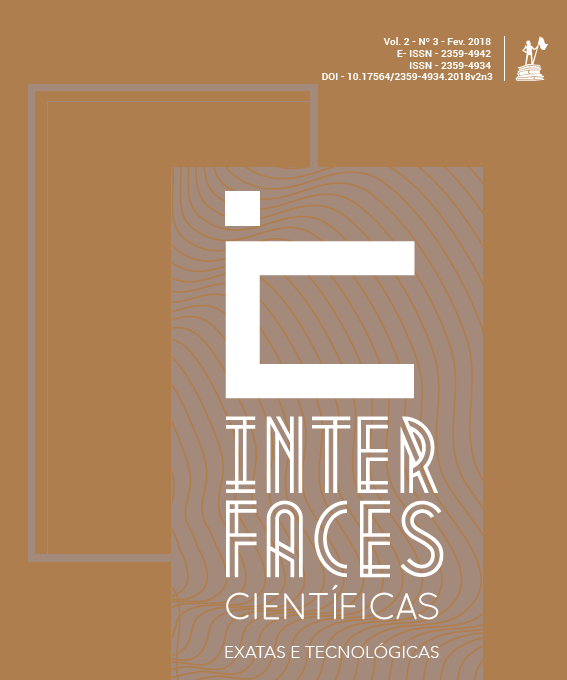Geração automática de tweets sobre as condições do trânsito: uma abordagem baseada em templates
DOI:
https://doi.org/10.17564/2359-4942.2018v2n3p21-30Palavras-chave:
Mineração de Dados no Twitter, Processamento de Linguagem Natural, Geração de Linguagem Natural, Classificador Bayesiano Ingênuo, ITSResumo
Com a popularização da Internet e a facilitação ao acesso à tecnologia, a utilização das redes sociais vem crescendo rapidamente nos últimos anos. No Twitter, por exemplo, são publicadas em média 50 milhões de mensagens por dia, o que o transforma em uma potencial base de dados a ser explorada. Esse trabalho tem por objetivo a geração de tweets automáticos sobre a situação do trânsito; o Twitter foi utilizado como uma fonte de informação e através do processo de Mineração de Dados foram extraídas informações sobre as condições do trânsito para a geração desses tweets. O resultado desse projeto foi a criação de um programa que publica no Twitter essas mensagens geradas.Downloads
Referências
AN, S.; LEE, B.-H.; SHIN, D.-R. A Survey of Intelligent Transportation Systems. 2011 Third International Conference on Computational Intelligence, Communication Systems and Networks, p. 332–337, 2011.
BAZZAN, A. L. C.; KLÜGL, F. Introduction to Intelligent Systems in Traffic and Transportation. Synthesis Lectures on Artificial Intelligence and Machine Learning, v. 7, n. 3, p. 1–137, 2013.
FAYYAD, U.; PIATETSKY-SHAPIRO, G.; SMYTH, P. From Data Mining to Knowledge Discovery in Databases. AI Magazine, v. 17, n. 3, p. 37, 1996.
GOLDSCHMIDT, R.; PASSOS, E. L. Data Mining. Um Guia Prático. Elsevier ed.
GOMIDE, J. et al. Dengue surveillance based on a computational model of spatio-temporal locality of Twitter. Proceedings of the ACM WebSci’11, June 14-17 2011, Koblenz, Germany., p. 1–8, 2011.
LAUAND, B. P.; OLIVEIRA, J. TweeTraffic: ferramenta de análise das condições de trânsito baseado nas informações do Twitter. II Brazilian Workshop on Social Network Analysis and Mining, p. 1–6, 2013.
MAGHREBI, M. et al. Complementing Travel Diary Surveys with Twitter Data: Application of Text Mining Techniques on Activity Location, Type and Time. IEEE Conference on Intelligent Transportation Systems, Proceedings, ITSC, v. 2015–Octob, p. 208–213, 2015.
NARAYANAN, R.; LIU, B.; CHOUDHARY, A. Sentiment analysis of conditional sentences. Proceedings of the 2009 Conference on Empirical Methods in Natural Language Processing Volume 1 EMNLP 09, n. August, p. 180, 2009.
NASUKAWA, T. et al. Sentiment analysis: Capturing favorability using natural language processing. Proceedings of the 2nd international conference on Knowledge capture, p. 70–77, 2003.
ONU. Estado de las Ciudades de América Latina y el Caribe 2012, Rumbo a una nueva transición urbana.
PEREIRA, W. F. O Uso De Sistemas Inteligentes Para O Aumento Da Eficacia Do Transporte Público Por Ônibus. Universidade Federal do Rio de Janeiro, 2007.
REITER, E.; DALE, R. Building Natural Language Generation Systems. Cambridge University Press, 2000.
RIBEIRO, S. S. et al. Traffic observatory: a system to detect and locate traffic events and conditions using Twitter. Proceedings of the 5th International Workshop on Location-Based Social Networks - LBSN ’12, p. 5, 2012.
TELLES, R.; GUIMARÃES, A.; MACEDO, H. Automated feeding of POI base for the generation of route descriptions. Proceedings of the 6th Euro American Conference on Telematics and Information Systems - EATIS ’12, p. 253, 2012.
Downloads
Publicado
Como Citar
Edição
Seção
Licença
Oferece acesso livre e imediato ao seu conteúdo, seguindo o princípio de que disponibilizar gratuitamente o conhecimento científico contribui para a democratização do saber. Assume-se que, ao submeter os originais os autores cedem os direitos de publicação para a revista. O autor(a) reconhece esta como detentor(a) do direito autoral e ele autoriza seu livre uso pelos leitores, podendo ser, além de lido, baixado, copiado, distribuído e impresso, desde quando citada a fonte.
Atribuição-CompartilhaIgual CC BY-SA This license lets others remix, adapt, and build upon your work even for commercial purposes, as long as they credit you and license their new creations under the identical terms. This license is often compared to “copyleft” free and open source software licenses. All new works based on yours will carry the same license, so any derivatives will also allow commercial use. This is the license used by Wikipedia, and is recommended for materials that would benefit from incorporating content from Wikipedia and similarly licensed projects.

